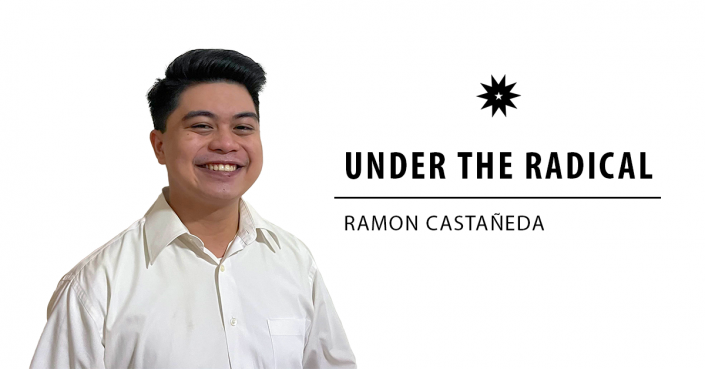
Last April 6, National Aeronautics and Space Administration (NASA) climate scientist Peter Kalmus was arrested in front of Chase Bank in downtown Los Angeles for protesting against the inaction toward the climate emergency. In his speech, he emphasized, “I’m here because scientists are not being listened to. I’m willing to take a risk for this gorgeous planet.”
While this further highlighted the direness of our situation, the silencing of scientists and advocates is not new.
In the Philippines, multiple incidents about environmentalists, scientists, and activists being arrested have been compounding. In terms of killings, the International Union for the Conservation of Nature reported in 2021 that 29 killings occurred in the country in 2020 alone. In response to this, Alyansa Tigil Mina denounced putting the “green defenders” of the country and worldwide in danger, especially those in the Philippines—which is claimed to be the most dangerous country for environmental activists in Asia.
Even in the government, the late Department of Environment and Natural Resources Sec. Gina Lopez was forced out of her job by the very administration that appointed her for facing stiff opposition after ordering the shutdown of 23 mines, the suspension of many others’ operations, and the cancellation of 75 mining contracts to protect watersheds.
It is with these actions—this reality—that we cannot seem to fathom just how leaders regard the climate crisis. Multiple pacts and agreements, including the Glasgow 2021 Summit, have had countries’ representatives “commit” to targets and promises. But just how many of them and their nations actually do their part?
We cannot sit back and watch governments and corporations repeatedly point fingers at the public when they are the ones who have the capability to enact changes and to mitigate the effects of climate change. Why continue blaming people for using plastic straws and not the manufacturers of these instead? Why continue blaming individuals for the sins that we are only forced to commit due to the lack of choice and fleeting resources?
To say that this is unfair is an understatement when we have been doing our parts. It is time for governments, corporations, and companies—especially those in the West—to own up to what they have done. Having the most contributions to the degradation of our planet, they easily should be the ones to be held accountable first and foremost.
In the Philippine context, and with the looming voting for the National and Local Elections (NLE), these demands should also be voiced out and then met by the candidates. While there have been mentions from presidentiables of said plans for resilient infrastructure, continuous tree planting, upgraded disaster preparedness technology, and lower carbon emissions, we need to ensure that they deliver on their promises.
We do not expect immediate changes, but evident efforts to make their visions a reality and for those who have made the first step toward climate action to keep their word.
Overall, however, not a lot of candidates have given the impression that their platforms to mitigate the climate emergency are front and center.
There have been the likes of Leody de Guzman who said that he will “wage a war” against climate change if elected, and Walden Bello who has been very vocal about his stance on climate action more than a decade before this year’s NLE. Willie Ong has also been vocal about the improvements we could make in terms of the COVID-19 response from a public health perspective.
Others like Vice President Leni Robredo have either signed pacts with “green” organizations or have expressed knowledge about what to do in debates and interviews. But these were merely discussions on the side. With the gravity of the climate emergency, platforms aimed toward addressing it need to be spotlighted.
As for the Senate hopefuls, it seems that only Teddy Baguilat, Neri Colmenares, David D’Angelo, Leila de Lima, Chel Diokno, Luke Espiritu, and Risa Hontiveros can be considered “green candidates”. For aspiring legislators, the prioritization of the environment and planetary health must be more visible. Not only that, they need to be well aware of the problem to know how to better approach it with accompanying policies.
The masses’ perception of its importance will definitely help, but as influential people, they need to also drive people’s attention to these matters. They need to establish that these are the most pressing issues, so these are what we have to talk about. Not later, not tomorrow—now.
At this point in time, we need to also check which leaders have the traits that can assure us of a future—one that encompasses their would-be term of office, and one that takes into consideration everyone including the next generations.
We have days before actual voting begins, and efforts now would not be as impactful as they were months ago, especially during the start of the campaign period.
I call on all national and local candidates—regardless of winnability and affiliation—to not only consider making a stand against capitalist efforts that harm the planet, but to act on such clamors. I call on the manufacturing companies to be greener and to actually start implementing these changes internally—from advocacies, operations, to partnerships. My voice may be inaudible against the noise of the world but I cannot just stay silent.
We, the common people, are desperate to keep Earth and its inhabitants safe. We need to share this urgency and desperation for action. We need to keep Earth and all of us alive.
